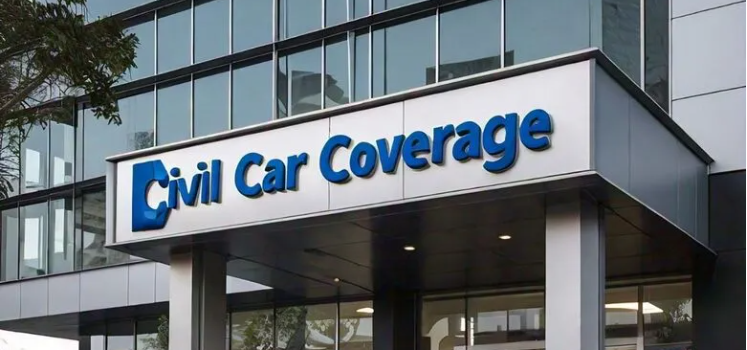Car insurance is a fundamental aspect of vehicle ownership, providing protection and financial security in case of accidents. Among the different types of car insurance available, civil car coverage holds significant importance. This form of coverage is designed to protect you in situations where you may be liable for damage or injury to others. Understanding civil car coverage is essential for every driver, as it ensures that you are adequately protected against financial risks while driving. In this article, we will explore what civil car coverage is, its benefits, and why it is a necessary aspect of car insurance.
What is Civil Car Coverage?
Civil car coverage is a type of auto insurance that provides liability protection in the event that you cause harm or damage to another person or their property while operating your vehicle. Unlike comprehensive or collision coverage, which focuses on repairing your own vehicle, civil car coverage is focused on protecting others from the consequences of your driving actions. This coverage typically includes two main components: bodily injury liability and property damage liability.
- Bodily Injury Liability: This part of civil car coverage pays for medical expenses, lost wages, and legal fees for the individuals involved in the accident that you caused. It is designed to cover the costs associated with injuries sustained by others due to your driving negligence or fault.
- Property Damage Liability: This component covers the repair or replacement costs of another person’s property that is damaged in an accident where you are at fault. Property damage can include vehicles, fences, buildings, or other structures damaged in the collision.
Having civil car coverage means that if you are responsible for an accident, you will not be personally liable for the high costs associated with the injury or property damage of others. This coverage helps protect your financial future, as it prevents you from bearing the full cost of accidents that involve other parties.
Why is Civil Car Coverage Necessary?
In many countries and states, civil car coverage is not just recommended—it is a legal requirement for all drivers. It ensures that drivers take responsibility for the potential harm they can cause while operating a vehicle. Let’s take a closer look at why this coverage is necessary:
Legal Requirement
In most regions, having civil car coverage is a legal mandate. Laws vary by state or country, but many places require drivers to carry a minimum amount of bodily injury and property damage liability coverage. Without it, drivers could face legal penalties, including fines, license suspension, or even imprisonment in the case of serious accidents. For instance, if you cause an accident and don’t have sufficient coverage, you could be held personally responsible for medical bills, legal costs, and property damage. This could quickly lead to overwhelming financial difficulties.
Protection Against Financial Loss
Accidents can happen to anyone, regardless of how careful you are behind the wheel. If you’re involved in a car accident and it’s determined that you’re at fault, civil car coverage will help cover the costs associated with the injury or damage to others. Medical bills, lost wages, and repair costs can quickly add up, and without proper coverage, you could face substantial financial strain. Civil car coverage provides you with peace of mind knowing that you won’t have to bear the financial burden of an accident.
Minimizing Legal Liability
Even if you do everything you can to drive safely, accidents can still occur. In the event of an accident, civil car coverage shields you from being personally liable for the damages. Without this coverage, you may face lawsuits from other parties involved in the accident. These lawsuits could result in expensive legal fees and court costs, along with compensation for damages and medical expenses. Having civil car coverage reduces your exposure to such legal liabilities and ensures that you’re financially protected.
The Benefits of Civil Car Coverage
Civil car coverage offers a wide range of benefits, providing both financial protection and peace of mind. Below are some of the key advantages of having civil car coverage as part of your auto insurance policy:
1. Financial Security for Accidents
Accidents can lead to significant financial losses, especially when medical expenses, vehicle repairs, and legal fees are involved. Civil car coverage helps ensure that you’re not burdened with these costs. By covering the expenses of injuries and property damage caused to others, you can avoid dipping into your own savings or assets to settle the financial consequences of an accident.
2. Protection for Other Drivers and Passengers
Civil car coverage is designed not just to protect you but also other road users. If you cause an accident, your civil car insurance will cover the medical bills and property repairs for others involved. This helps foster a sense of shared responsibility, where all drivers contribute to protecting the broader community of road users.
3. Compliance with Legal Requirements
As mentioned earlier, in many places, civil car coverage is a legal requirement. Having the appropriate coverage ensures that you’re in compliance with local laws. Failing to meet the minimum required liability limits could result in legal penalties, which can include fines or suspension of your driving privileges. By maintaining civil car coverage, you ensure that you are legally driving and protected.
4. Coverage in Hit-and-Run Situations
In the unfortunate event that you’re involved in a hit-and-run accident, civil car coverage can still offer protection. In many areas, if the at-fault driver cannot be identified or is uninsured, your civil car insurance policy may cover the costs of the accident. This ensures that you are not left to deal with the financial consequences on your own.
5. Peace of Mind
One of the greatest benefits of civil car coverage is the peace of mind it provides. Driving is inherently risky, and the possibility of an accident is always present. With civil car coverage in place, you can drive with confidence, knowing that you’re covered if something goes wrong. This peace of mind is invaluable, especially in the chaotic environment of busy streets and highways.
Understanding the Minimum Requirements for Civil Car Coverage
Different regions and states have varying minimum requirements for civil car coverage. These minimums are determined by law and set the baseline for liability coverage. It’s important to understand these requirements to ensure that you meet the legal obligations and have sufficient protection.
- Bodily Injury Liability: Many places require a minimum amount of bodily injury liability coverage per person and per accident. For instance, some states may mandate a minimum of $25,000 per person and $50,000 per accident. This means that if you’re at fault in an accident, your insurance will cover up to these amounts for medical expenses and lost wages.
- Property Damage Liability: The minimum required property damage liability coverage typically ranges from $10,000 to $25,000, depending on the state. This coverage helps pay for the repair or replacement of property damaged in an accident.
While these are the minimum requirements, experts recommend purchasing higher limits of coverage to ensure that you are adequately protected. Accidents can be expensive, and the minimum coverage may not be enough to cover the full cost of significant damage or injuries.
How to Choose the Right Civil Car Coverage
Choosing the right civil car coverage depends on several factors, including the legal requirements in your area, your personal financial situation, and the level of risk you’re comfortable with. Here are some tips for selecting the appropriate coverage:
1. Assess Your Risk
Consider your driving habits, the types of roads you drive on, and the likelihood of being involved in an accident. If you frequently drive in high-traffic areas or have a history of accidents, you may want to opt for higher liability limits to ensure you’re fully protected.
2. Understand State Requirements
Make sure you’re aware of the minimum coverage requirements in your state or country. While meeting the minimum legal requirement may be sufficient for some, many drivers choose to purchase additional coverage to enhance their protection.
3. Compare Insurance Providers
Different insurance companies offer varying levels of coverage, pricing, and customer service. It’s essential to shop around and compare quotes from multiple providers to find the best deal for your needs. Look for an insurer that offers competitive rates, reliable claims support, and solid coverage options.
4. Evaluate Your Financial Situation
If you have significant assets, it may be wise to increase your liability coverage to protect those assets in case of a lawsuit. Higher liability limits can give you greater peace of mind, knowing that your wealth is safeguarded in the event of an accident.
Conclusion
Civil car coverage is an essential part of auto insurance that protects you, others, and your financial future in the event of an accident. With its focus on liability, civil car coverage ensures that you’re covered for damages and injuries that you may cause to other drivers, passengers, and property. Whether it’s a legal requirement in your area or simply a responsible choice, having the appropriate coverage is vital for every driver.
By understanding the importance of civil car coverage, you can make informed decisions about your auto insurance policy and ensure that you’re adequately protected on the road. Make sure to assess your personal needs, evaluate your coverage options, and select a policy that provides the financial security you deserve.


